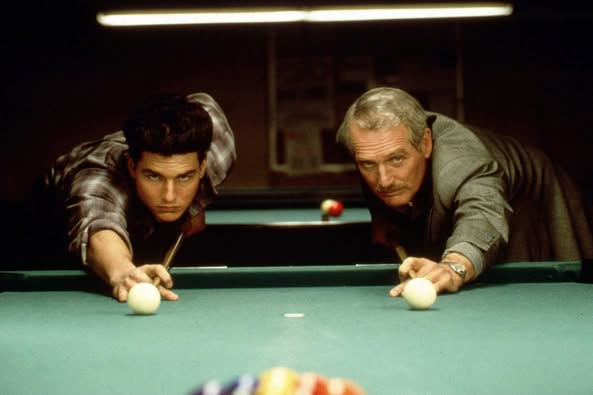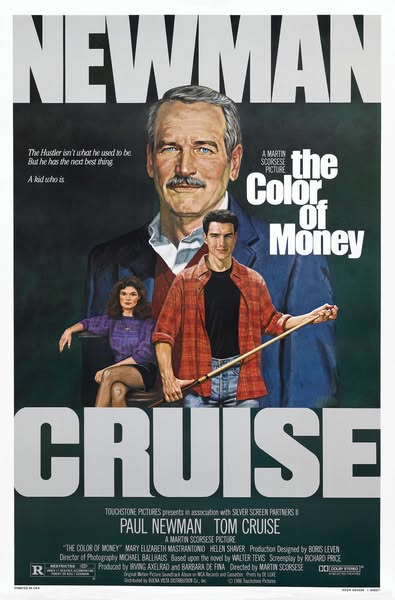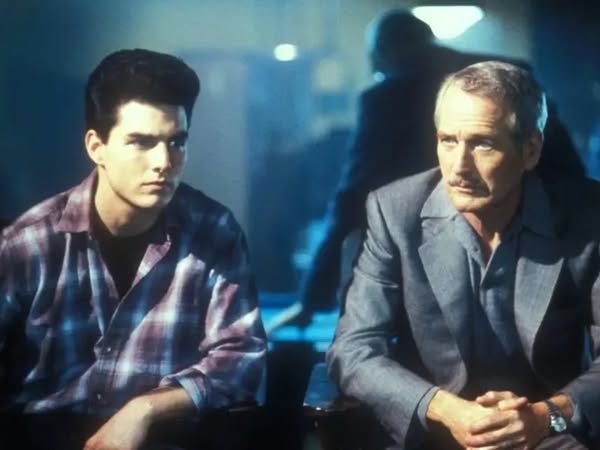The Color of Money (1986)

The Color of Money is a 1986 drama directed by Martin Scorsese, serving as a sequel to the 1961 film The Hustler. The film stars Paul Newman reprising his role as Fast Eddie Felson, alongside Tom Cruise, who plays the ambitious young pool player Vincent Lauria. This compelling narrative explores themes of mentorship, ambition, and the complexities of the competitive world of billiards.
The story follows Eddie, who has left behind his days as a hustler and is now managing a bar. Despite his attempts to lead a quieter life, he becomes drawn back into the world of pool when he meets Vincent, a brash and talented player with dreams of greatness. Recognizing Vincent’s potential, Eddie takes him under his wing, hoping to mold him into a champion while also reigniting his own passion for the game.

Newman delivers a powerful performance, showcasing Eddie’s internal struggles as he grapples with the lure of the hustle and the wisdom gained from his past experiences. Cruise shines as Vincent, embodying the character’s youthful exuberance and reckless ambition. Their dynamic forms the heart of the film, highlighting the mentor-mentee relationship that evolves throughout their journey.
Scorsese’s direction is characterized by his signature style, utilizing dynamic camera work and vibrant cinematography to capture the intensity of pool matches and the energy of the environment. The film’s pacing reflects the rhythm of the game, building tension and excitement during crucial moments.

The narrative also explores the darker side of ambition, as Eddie becomes increasingly aware of Vincent’s flaws and the potential consequences of his reckless behavior. This tension culminates in a climactic showdown that tests both their skills and their relationship.
The Color of Money received critical acclaim, with Newman winning an Academy Award for Best Actor for his portrayal of Eddie. The film is notable for its exploration of themes such as redemption, the cost of ambition, and the complexities of mentorship. It delves into the idea that success in the competitive world of sports comes with both triumphs and sacrifices.

In summary, The Color of Money is a rich and engaging drama that expertly combines strong performances, dynamic direction, and a compelling narrative. It serves as both a continuation of Eddie Felson’s story and a standalone exploration of ambition and mentorship in the world of billiards, making it a significant entry in Scorsese’s filmography.











